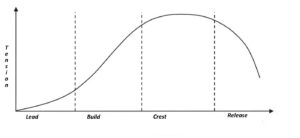What if one of our fundamental gut desires is to believe in the non-factual, the unproven, the ineffable? May we call that kind of desire a “desire for the magical” without placing any judgment on it?
Watch video or listen to the audio
Why? Could this help us understand those in the hard sciences who also accept the story of creation as written in Genesis to be hard facts? Aren’t such people in full possession of observation-based understanding AND a desire for the magical? Does that apparent conflict diminish their contributions to either field?
Does admitting a built-in human desire for the magical make it easier to understand any religious beliefs that aren’t ours?
In government politics, how does the desire for the magical clarify the contrasting societal, economic, and moral visions of, say, Democrats and Republicans?
Isn’t contrast, although not wrong, certainly not a pleasant part of the creative, the evolutionary, the forward-progressing process? Aren’t paradoxes and trauma a part of growth?
Is the better question “Why are we so willing to be lied to? or “Why must we believe anything?” Does it feel more honest to ask “Why did you lie to me?” or “Why did I believe you?”
Don’t the answers to those questions change based on what parts of you stand on observable fact and what parts accept intangible belief? Is that a problem? Must we always measure contrast by how unlike us “their” desire for the magical is to ours?
How can we use this contrast between a desire for the magical and an observation-based understanding?
Aren’t we in civilization doing precisely that right now? Have you considered that the great upheaval of contrast might actually be about using mega-contrast…for good?
Are you aware that current understanding – as good as it is at predictions and offering alternatives – cannot predict the post-upheaval future of civilization? And would it be a huge stretch to allow for a slightly elevated desire for the magical, even if that looks religious, political, or just plain far-out psychedelic/spiritual?
Are you OK allowing everyone to do this at their own pace, even if that means we might leave loved ones behind, or be passed up by them? Do you see how that might be more difficult for some of us than others? Does that insight trigger you to compassion? Something else?
Whatever blend you embody between process-based enjoyment of the mechanics of knowledge and belief-based fascination with the unfathomable foundational Truths as you grok them, would you please make us one tiny concession? Would you concede that whatever blend is ours and however different from yours, we each have our reasons? Could you understand that and would that help you understand us? May we do the same for you?
And may we suggest one other way of acting about all this? Would you agree that killing me is a poor way to help us understand your blend? Given the choice, is it more important that we understand you, or that we die? If death, are you prepared to sacrifice the perpetuity of your being to those whose mortal power exceeds yours?
What is the end state of the road of power? The road of peace? Which will you choose?
_____________________________
Over the course of more than 40 years of paying attention to how music works on us, Bill Protzmann has rediscovered the fundamental nature and purpose of music. Bill has experimented with what he learned through performing concerts, giving lectures, facilitating workshops, and teaching classes. For example, he first published on the powerful extensibility of music into the business realm in 2006 (here and abstract here). Ten years later, in 2016, he consolidated his work into the Musimorphic Quest. In this guided, gamified, experiential environment, participants discover and remember their innate connection to this ancient transformative technology. Also, The National Council for Behavioral Healthcare recognized Bill in 2014 with an Inspiring Hope award for Artistic Expression, the industry equivalent of winning an Oscar.
Musimorphic programs support\ wellness for businesses, NPOs and at-risk populations, and individuals.



